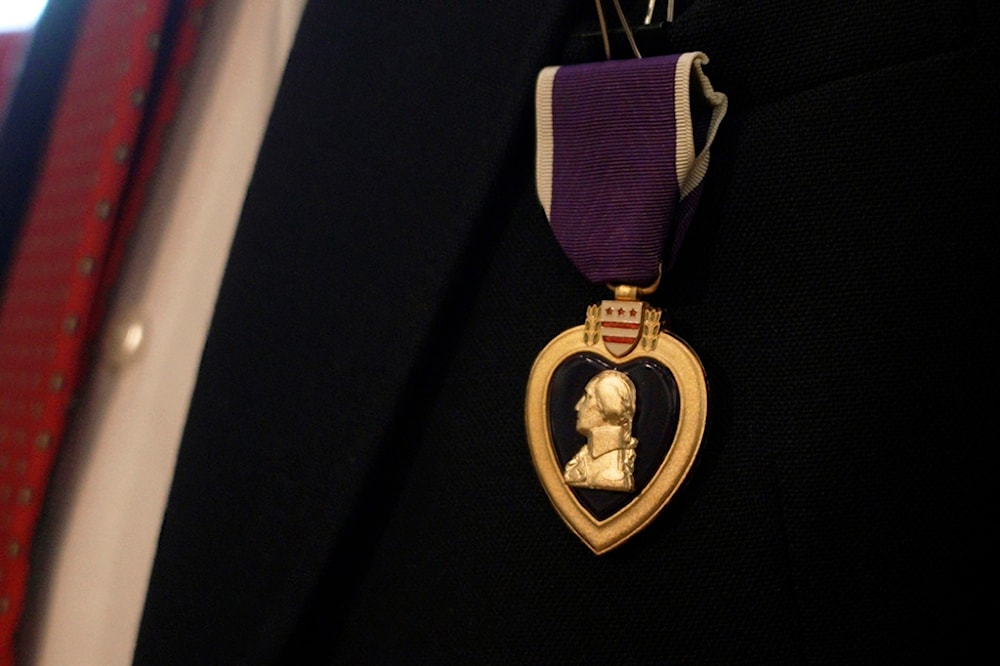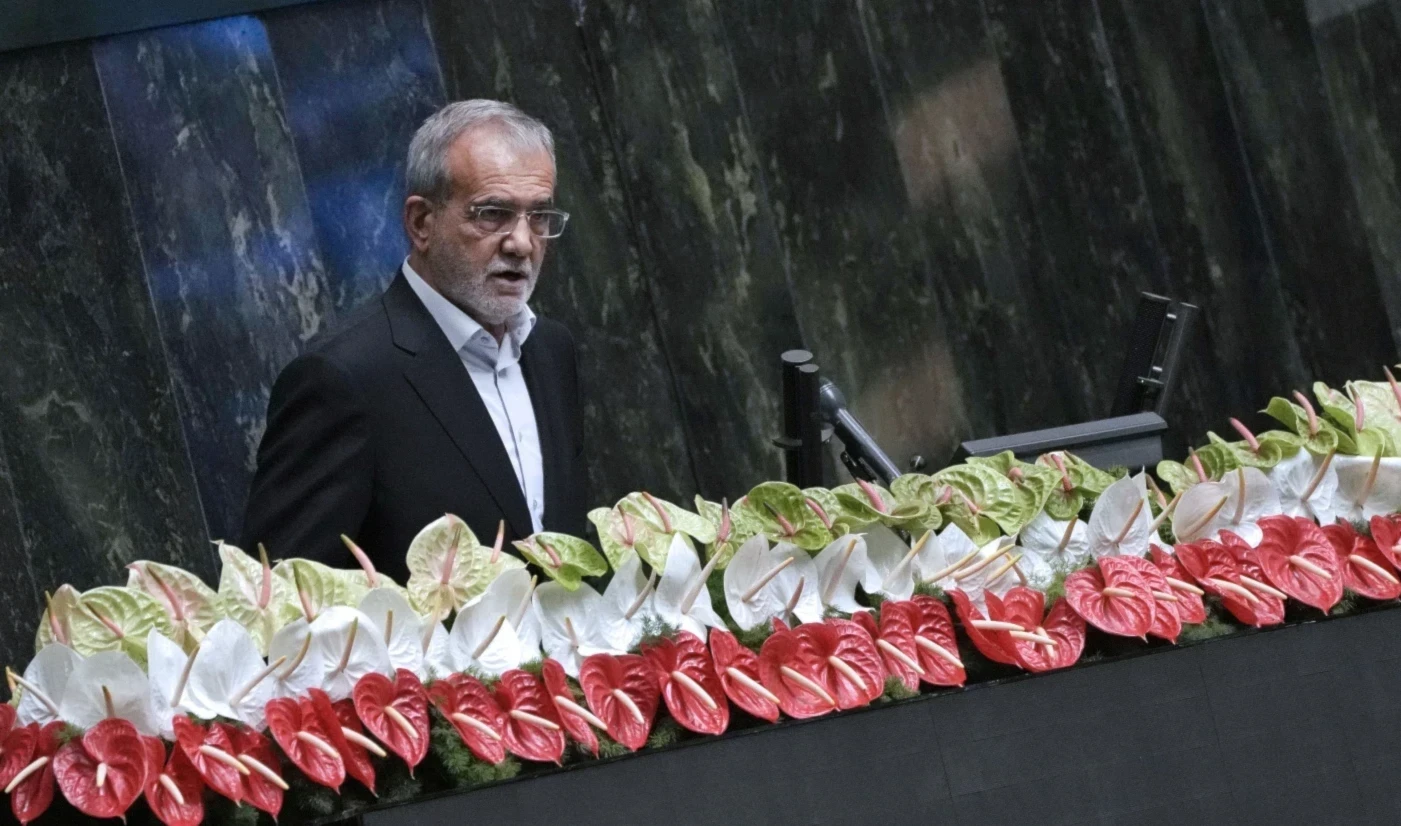US soldiers denied Purple Hearts post Iran's 2020 Ain al-Assad op: CBS
The Purple Heart is not just a symbolic recognition but also provides lifetime benefits, including priority medical care, educational assistance, and home loan advantages.
-

Earl Meyer wears his freshly awarded Purple Heart medal for combat injuries he received while serving in the Korean War, Friday, May 17, 2024 in St. Peter, Minn. (AP)
CBS reported on Wednesday that dozens of US soldiers who suffered traumatic brain injuries (TBIs) during the January 8, 2020, Iranian missile attack on the Ain Al-Assad Air Base in Iraq have yet to receive the Purple Heart despite meeting eligibility criteria.
The attack, launched in retaliation for the US killing of Iranian General Qasem Soleimani, resulted in the largest ballistic missile assault on American forces in history, leaving many soldiers with severe injuries but no fatalities.
Platoon Sergeant Daine Kvasager, who was among those injured, described the aftermath of the attack, stating, "The person I was prior to a traumatic brain injury, he's gone."
Kvasager, along with other members of Taskforce Scarecrow, reported ongoing health issues, including vision and hearing problems, memory loss, and constant headaches, which have significantly impacted their ability to work and live normal lives.
33 soldiers denied Purple Heart
CBS's investigation revealed that 56 soldiers were submitted for Purple Heart recognition due to their injuries, but only 23 received the award.
Captain Geoffrey Hansen, who led the taskforce during the attack, believes politics may have played a role in the Army’s decision to withhold recognition from the remaining soldiers.
Despite Army regulations clearly stating that injuries caused by hostile foreign forces qualify for the Purple Heart, many soldiers who remained at the base to support the mission were not awarded the honor.
Read more: Pezeshkian praises martyr General Soleimani at meeting with family
The Army has since confirmed that the soldiers' award packets are being reconsidered by the Human Resources Command.
However, frustrations persist, with soldiers like Kvasager and Hansen feeling their injuries were downplayed to avoid escalating tensions with Iran or contradicting former President Trump, who had referred to the injuries as "headaches" and "not very serious" in a press conference following the attack.
The Purple Heart is not just a symbolic recognition but also provides lifetime benefits, including priority medical care, educational assistance, and home loan advantages.
Some soldiers who received TBIs but were denied the award, like Mike Pridgeon, expressed disappointment, saying, "The Army has sent a message to injured soldiers that their sacrifice was 'insignificant' and 'not worth consideration.'"
Martyrdom of Soleimani
On January 3, 2020, the US carried out a drone strike authorized by former US President Donald Trump targeting a car carrying the commander of the Quds Force of the IRGC, Lieutenant General Qassem Soleimani, and his Iraqi trench mate and the second-in-command of Iraqi PMF (Popular Mobilization Forces), Abu Mahdi Al-Muhandis.
Martyr Soleimani was on an official visit to Iraq and was transported in a car with Martyr Al-Muhandis from Baghdad's International Airport upon his arrival before being assassinated by the US.
Days after his martyrdom, the anti-terror icon’s body was transferred to Iran and was laid to rest in his hometown of Kerman.
The US has attempted to block the legal case's prosecution.
Iran's late Foreign Minister, Hossein Amir-Abdollahian, noted at the time that "unfortunately, both the Americans and some other Western countries are creating obstacles in the way of judiciary procedure, but the Islamic Republic of Iran, too, is not hand-tied."
Read more: A memory for life; how Soleimani’s friend remembers him: Exclusive

 3 Min Read
3 Min Read










